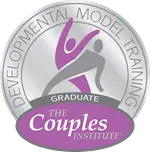Relationships are complex and require effort and commitment from both parties to maintain a healthy dynamic. However, sometimes even the most loving couples can find themselves struggling to communicate effectively or facing challenges that seem insurmountable. If you’re feeling stuck in your relationship and unsure of how to move forward, a marriage counselor might be just what you need. In Ohio, there are a number of skilled professionals who specialize in helping couples navigate the ups and downs of their relationships. But beyond simply improving communication, a marriage counselor can help you and your partner develop a deeper understanding of each other, build stronger bonds, and find new ways to connect on a more meaningful level. In this article, we’ll explore the many benefits of working with an Ohio marriage counselor and how they can help you take your relationship to the next level.
What is Relationship Dynamics?
Relationship dynamics refer to the patterns and interactions that occur between individuals in a relationship. It includes the way people communicate, express their emotions, solve problems, and make decisions. Relationship dynamics can be positive, negative, or a combination of both, and they can change over time. When couples experience challenges in their relationship, it is often due to negative relationship dynamics. For example, one partner may feel unheard or unappreciated, leading to feelings of resentment or anger. Alternatively, couples may struggle with unhealthy patterns of communication that result in misunderstandings or conflict.
Common Relationship Dynamics Issues
There are many different relationship dynamics issues that couples can face, and each situation is unique. However, some of the most common issues include:
– Communication problems
– Trust issues
– Differences in parenting styles
– Conflicting schedules or priorities
– Lack of emotional connection
These issues can be challenging to address on your own, and they may require the help of a skilled professional to overcome.
Benefits of Marriage Counseling
Marriage counseling offers many benefits to couples who are struggling with relationship dynamics issues. Some of the most significant benefits include:
### 1. Improved Communication
One of the primary benefits of marriage counseling is improved communication between partners. A skilled counselor can help couples identify areas of communication breakdown and develop new skills and techniques to facilitate better communication. This can help couples feel more heard, understood, and connected to each other.
### 2. Deeper Understanding of Each Other
Marriage counseling can also help couples develop a deeper understanding of each other. By exploring past experiences, current challenges, and future goals, couples can gain new insights into each other’s perspectives and build greater empathy and compassion for one another.
### 3. Stronger Bonds
Marriage counseling can also help couples build stronger bonds with each other. By working together to overcome challenges and develop new skills, couples can develop a greater sense of trust, respect, and intimacy. This can lead to a more fulfilling and satisfying relationship.
### 4. New Ways to Connect
Finally, marriage counseling can help couples find new ways to connect with each other. By exploring new activities, hobbies, or shared interests, couples can develop a deeper sense of connection and joy in their relationship.
Finding the Right Ohio Marriage Counselor
If you’re considering marriage counseling, it’s essential to find the right counselor for your needs. Here are some tips for finding a skilled and experienced counselor in Ohio: (although you probably don’t need to look further than Cardinal Point Counseling 🙂
– Ask for referrals from friends, family, or your primary care physician.
– Research local counselors online and read reviews from past clients.
– Schedule a consultation with potential counselors to ask questions and get a feel for their approach.
– Look for counselors who specialize in couples therapy or have experience working with relationship dynamics issues
The Marriage Counseling Process
The marriage counseling process typically involves several sessions with a trained counselor. During these sessions, couples will work together to identify the underlying issues contributing to their relationship challenges and develop strategies for addressing them. Here’s what you can expect during the marriage counseling process:
### 1. Assessment
The first step in the marriage counseling process is assessment. The counselor will ask questions and gather information about your relationship history, current challenges, and goals for counseling. This helps the counselor develop a personalized treatment plan for your needs.
### 2. Goal Setting
Once the assessment is complete, the counselor will work with you and your partner to set goals for counseling. These goals will be specific, measurable, and focused on addressing the underlying issues contributing to your relationship challenges.
### 3. Skill-Building
Couples will then work together to develop new skills and techniques for improving their relationship dynamics. This may include communication strategies, conflict resolution techniques, or ways to build intimacy and connection.
### 4. Homework and Exercises
Couples will also be given homework and exercises to complete outside of sessions. These may include practicing new communication strategies, engaging in shared activities, or journaling about their feelings and experiences.
### 5. Progress Evaluation
Throughout the counseling process, the counselor will monitor progress and make adjustments to the treatment plan as needed. Couples will also have the opportunity to evaluate their progress and make adjustments to their goals and strategies.
Techniques Used in Marriage Counseling
There are many different techniques and approaches used in marriage counseling. Some of the most common include:
### 1. Cognitive-Behavioral Therapy
Cognitive-behavioral therapy (CBT) is a goal-oriented approach that focuses on changing negative thought patterns and behaviors. In marriage counseling, CBT may be used to help couples identify and challenge unhelpful beliefs and develop new coping strategies.
### 2. Emotionally Focused Therapy
Emotionally focused therapy (EFT) is an approach that focuses on building emotional connections and strengthening bonds between partners. In marriage counseling, EFT may be used to help couples develop greater empathy and compassion for each other, leading to a more satisfying relationship.
### 3. Gottman Method
The Gottman method is an evidence-based approach to couples therapy that focuses on building friendship, managing conflict, and creating shared meaning in the relationship. In marriage counseling, the Gottman method may be used to help couples develop new skills and strategies for improving their relationship dynamics.
Homework and Exercises for Couples
Homework and exercises are a critical part of the marriage counseling process. Here are some examples of homework and exercises that couples may be asked to complete:
– Practicing active listening
– Engaging in shared activities
– Writing love letters to each other
– Keeping a gratitude journal
– Practicing mindfulness meditation
– Having a weekly date night
– Engaging in physical touch or affection
How to Keep the Progress Going After Counseling
Marriage counseling can be a powerful tool for improving relationship dynamics, but it’s not a magic solution. After counseling, couples must continue to work on their relationship and practice the skills and strategies they’ve learned. Here are some tips for keeping the progress going after counseling:
– Set regular check-ins to discuss your relationship and any ongoing challenges.
– Practice active listening and effective communication.
– Engage in shared activities and hobbies.
– Show appreciation and gratitude for each other regularly.
– Seek support from friends, family, or a support group if needed.
Conclusion
Marriage counseling can be a valuable resource for couples struggling with relationship dynamics issues. By improving communication, developing a deeper understanding of each other, building stronger bonds, and finding new ways to connect, couples can take their relationship to the next level. If you’re considering marriage counseling in Ohio, take the time to find a skilled and experienced counselor who can help you achieve your relationship goals. With commitment and effort, you and your partner can build a more fulfilling and satisfying relationship.







